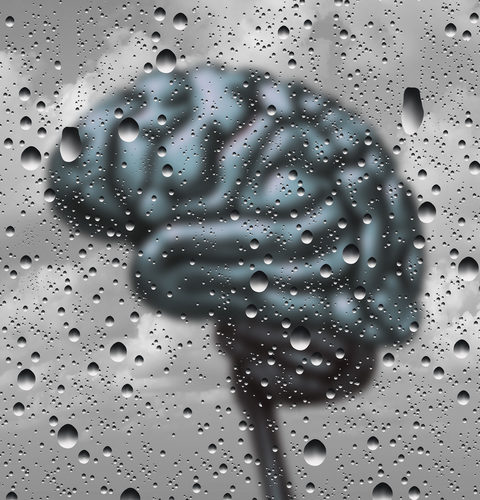Benzodiazepines, often shortened to “benzos,” are a commonly abused class of prescription psychotherapeutic drugs. Benzodiazepines have seen a rise in popularity in recent years with the use of brand names like Xanax, Valium, Ativan and Klonopin in treating anxiety disorders. These drugs are all among the top 100 prescription medications in the United States, with approximately 14 million people filling benzodiazepine prescriptions in 2013. In 2011, the Substance Abuse and Mental Health Services Administration released research estimating that the number of people admitted for substance abuse treatment related to benzodiazepine abuse had tripled from approximately 20,000 to 60,000 in the ten years between 1998 and 2008. More recent studies exploring overdoses, drug-related deaths and prescription rates suggest that these numbers have continued to grow.
EFFECTS OF BENZODIAZEPINE ADDICTION ON THE BRAIN AND BODY
Benzodiazepines were initially introduced in the 1960s as a replacement for barbiturates, which medical researchers had recently shown to be highly addictive and potentially lethal. Both classes of drugs are intended to treat anxiety, insomnia and seizures, and work similarly in the brain though benzodiazepines are considered less toxic.
These drugs rely on a chemical communicator in the brain called GABA, a substance whose presence sends calming, inhibitory signals that decrease brain activity. In the healthy brain, GABA is helpful in processing fear reactions and regulating sleep patterns. Benzodiazepines increase the production of GABA, which is useful for treating mental health disorders brought on by brain overactivity — anxiety, insomnia, epilepsy or depression. However, when taken recreationally, they can produce a drowsy high. Someone who uses benzodiazepines may seem sleepy, uncoordinated, slow to react and less aware of their surroundings than usual.
Continued abuse of benzodiazepines can result in a dependence on the heightened levels of GABA in the brain. Without the drug, your brain may feel overactive; anxiety or sleep disorders may become worse, and your body may react with symptoms like an increased heart rate, hallucinations or tremors.


TREATING BENZODIAZEPINE ADDICTION
Withdrawal symptoms like depression, anxiety and insomnia can last weeks or months after detox from benzodiazepines. In these cases, avoiding relapse depends heavily on access to regimented addiction recovery programs until symptoms subside. Enrolling in a residential or intensive outpatient program can be the best way to combat a long-lasting withdrawal period. At The Springboard Center in Midland, TX, recovery without relapse is our goal for every client. In order to provide top-quality care for those recovering from benzodiazepine addiction, our programs include:
- Residential treatment
- Intensive outpatient treatment
- Medically-assisted detox
- Individual and group therapy
We are also equipped to treat clients who are recovering from addictions to multiple substances, also called co-occurring addictions. Studies show that nearly 95 percent of those addicted to benzodiazepines also abuse other substances and that combining benzodiazepines with other drugs or alcohol can drastically increase the risk of overdose and death. Effectively treating multiple addictions requires a specialized approach to ensure your health and safety during detox, withdrawal and recovery.
CONTACT THE SPRINGBOARD CENTER
Springboard is proud to be the premier addiction treatment center for the Permian Basin region of Texas, New Mexico and Oklahoma. We treat men and women over the age of 18 for addiction to drugs and alcohol, and we can offer medically-assisted detox at our facility and in partnership with local healthcare centers. If you or your loved one is struggling with addiction, contact us to find out if our programs are right for you. Call us today at our office in Midland, TX 432-620-0255 to learn more about the resources available to you during your recovery.

